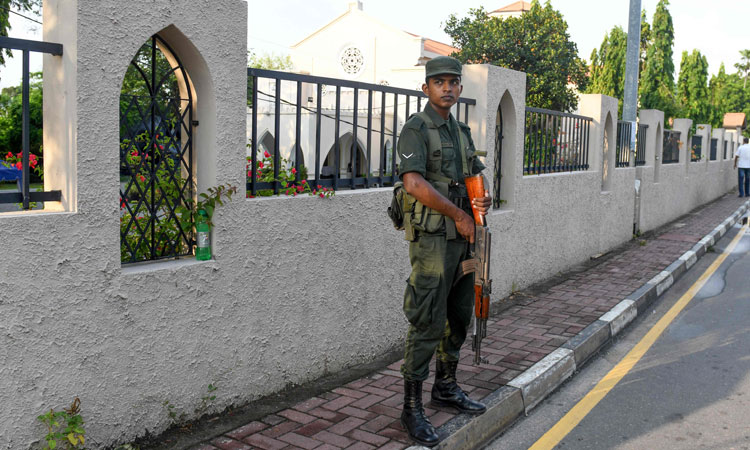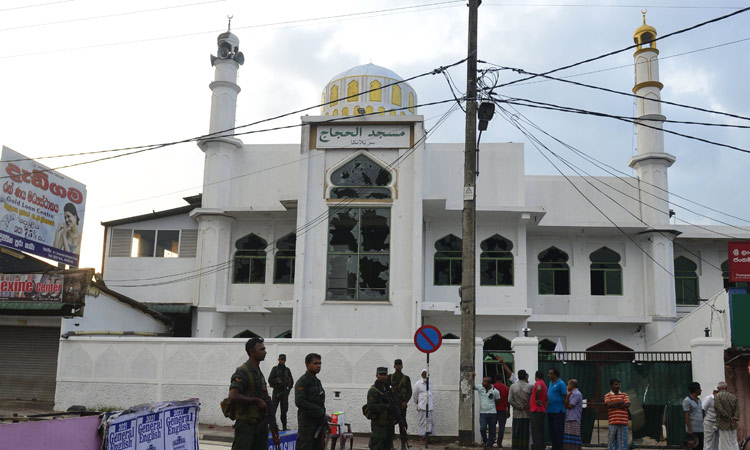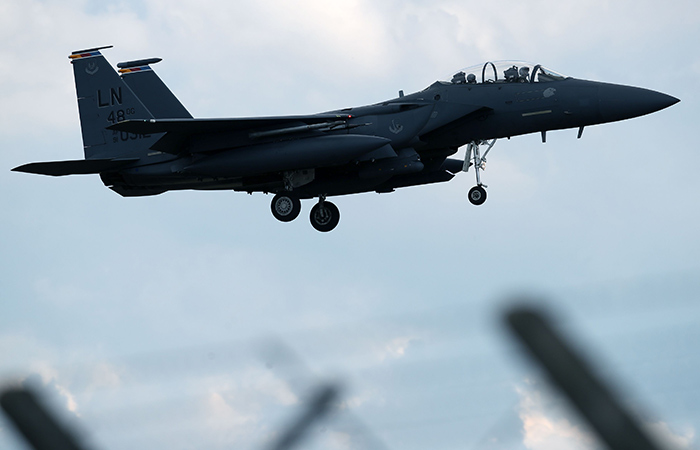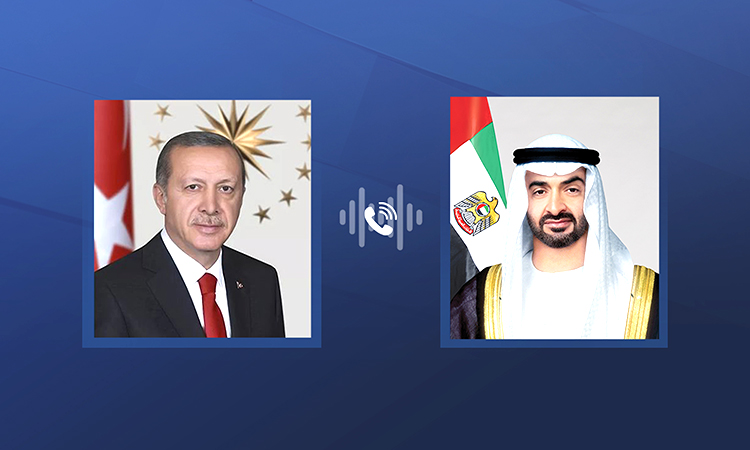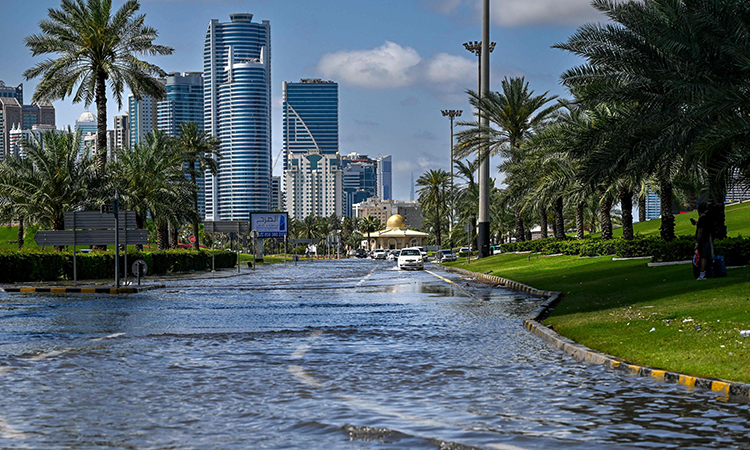Situation ‘under control’ after anti-Muslim riots in Lanka
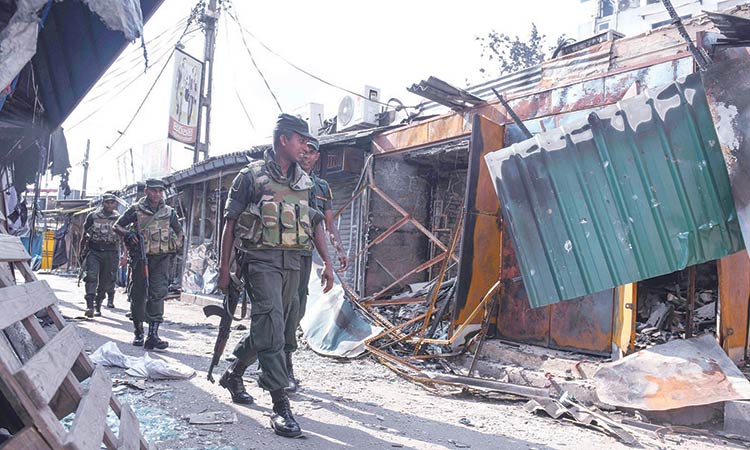
Sri Lankan soldiers walk past a damaged shop after a mob attack in Minuwangoda on Wednesday. Agence France-Presse
A second overnight curfew imposed nationwide ensured there was no repeat of Monday’s violence against Muslims, who make up some 10 per cent of Sri Lanka’s population of 21 million.
Many Muslims have been bracing for revenge attacks since three churches and three luxury hotels were bombed by local Islamist extremists on April 21, killing 258 people.
“The situation is now totally under control,” said military spokesman Sumith Atapattu.
“There were no incidents of violence overnight and we are arresting groups of people responsible for taking part in mob attacks.”
Ruwan Gunasekera, a police spokesman, said that more than 80 people were in custody as of Tuesday evening.
Official sources said police deployed special teams to review CCTV camera footage to identify the perpetrators of the riots and many arrests were being made on this basis.
More police and army units were seen deployed in the troubled area as the authorities lifted the nationwide curfew on Wednesday morning.
But Muslims in North-West Province remained nervous and stayed indoors on Wednesday, after sword-wielding rioters killed one man late on Monday while vandalising scores of shops and mosques.
In Bingiriya, where some 2,000 people went on the rampage, Muslim cleric M.I.M. Siddeeque said the community was worried. “Our people are still afraid to go out,” he told AFP by telephone.
Military spokesman Atapattu said security forces were arresting small groups of suspected trouble-makers and handing them over to police.
They were being held under emergency laws under which convicts can be jailed up to 10 years, police spokesman Gunasekera said.
Among those detained was Amith Weerasinghe, a man from Sri Lanka’s majority Buddhist Sinhalese community and on bail for his role in similar riots in March last year in the central Kandy district.
Another man arrested was identified as Namal Kumara, a deserter from both the army and the air force for his alleged role in leading mobs.
Meanwhile, the police also made several changes in the command structure by removing senior officers in the troubled areas after allegations that officials did nothing to stop the rioters.
Parliamentary speaker Karu Jayasuriya condemned the violence and appealed for calm.
“The attacks on mosques, the burning of houses and shops, the attacks on innocent people cannot be condoned in any way,” Jayasuriya said in a statement.
The attacks came during the Muslim holy fasting month of Ramadan.
A state of emergency has been in place since the Easter bombings and security forces have been given sweeping powers to detain suspects.
Internet service providers said the telecoms regulator on Tuesday extended a social media ban to Twitter.
Earlier, Facebook, WhatsApp, YouTube and Instagram had been blocked to prevent the spread of messages inciting violence.
Meanwhile, Sri Lanka’s army said it was investigating a video posted on social media that showed a man dressed as a soldier walking away seconds before a mob attacked a building during anti-Muslim riots.
In the video, a man wearing what appeared to be an army uniform stands outside a building and then walks away. Seconds later, about two dozen people, including young men wearing motorbike helmets, run over and throw stones at the building. “The attention of the army has been drawn to a video clip where a person dressed in uniform similar to that of the army was watching while a group of violent saboteurs were in action in the general area of Thunmodara,” the army said in a statement announcing the investigation.
Two residents of Thunmodara told Reuters that a mosque and some Muslim-owned shops were attacked in the town in Kurunegala district that was hardest hit by the rioters.
In an unrelated development, a Briton whose bride died on their honeymoon two days after arriving in Sri Lanka will be allowed to return home after a court lifted a travel ban on Wednesday.
Agencies
